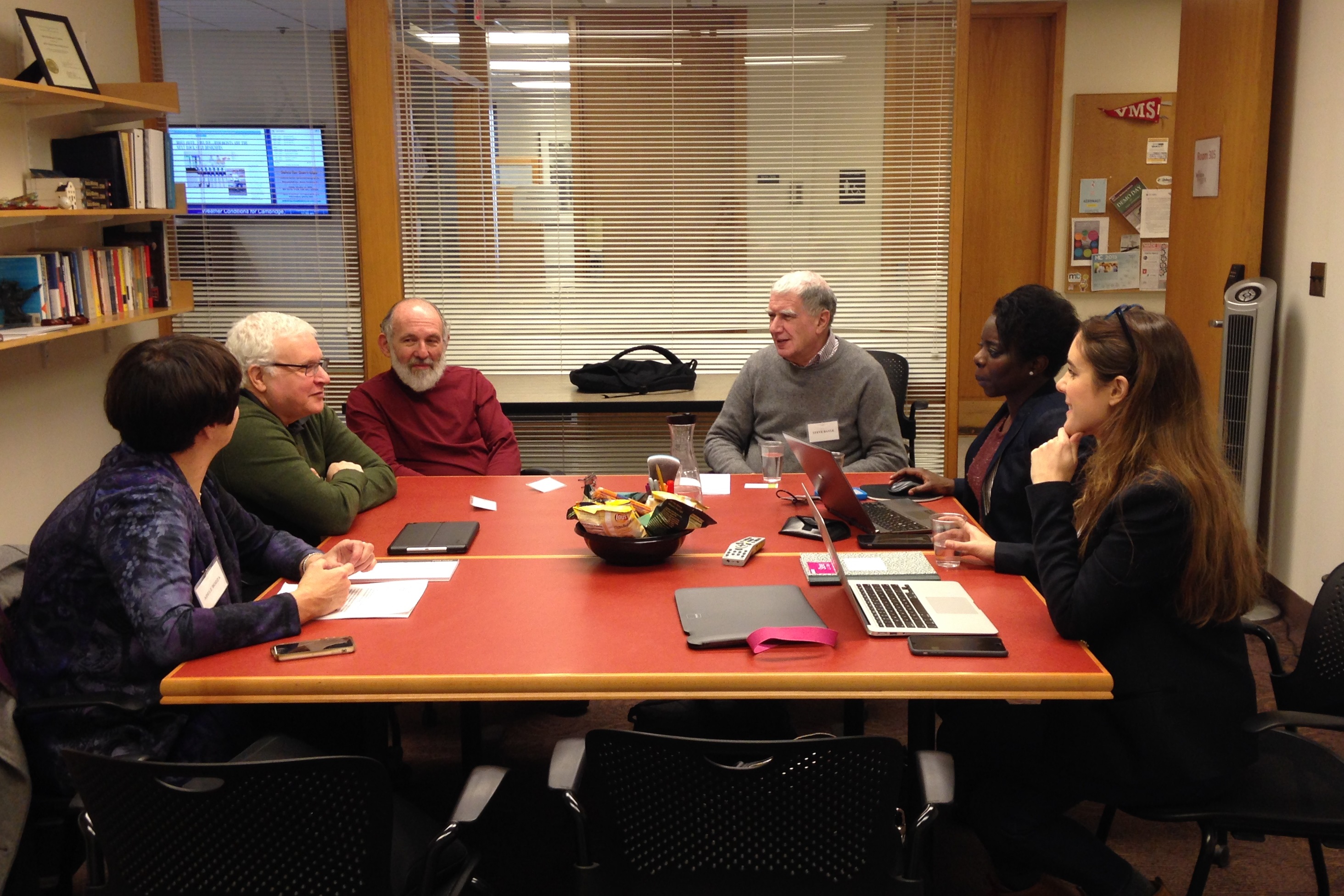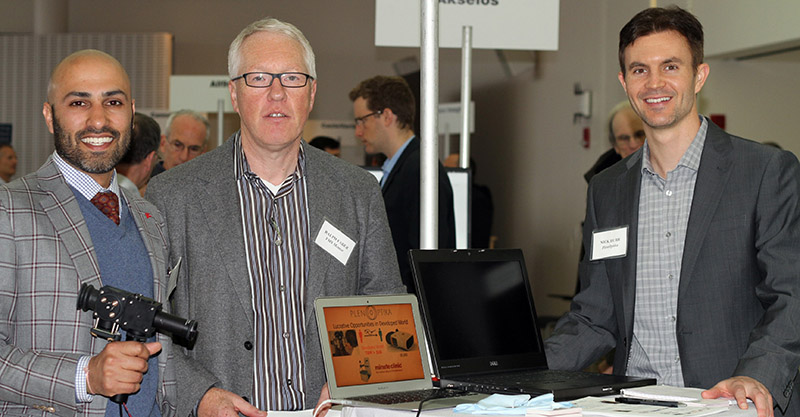Venture Mentoring Service Backs Budding Businesses
-
-
slice.mit.edu
Filed Under
Recommended

Plenty of groups can help turn an idea into a business reality but, unlike many, the MIT Venture Mentoring Service (VMS) doesn't give out money or prizes to budding entrepreneurs. Instead, it offers something more valuable: free, unbiased business advice from experienced entrepreneurs for as long as you need it.
Twenty ventures will make five-minute pitches at the invitation-only VMS Demo Day at MIT on April 26. This is a milestone in a process that begins when anyone in the MIT community—students, faculty, staff, or alumni—has an idea that they want to turn into a business. Successful applicants are matched with a team of mentors selected from about 150 active volunteers.
Want a behind-the-scenes glimpse? The Alumni Association will be chatting live with some of the alumni entrepreneurs presenting at the VMS Demo Day. Tune in to the Association’s Facebook channel at 2:40 p.m. EDT this Thursday, April 26.
Mentors are mostly MIT alumni who have been entrepreneurs and industry executives, and they have skills ranging from electrical engineering and robotics to patent law and intellectual property to sales and strategy, as well as lots of helpful contacts within their industries.
The startup support system at MIT is so good—you're never going to be in a better position to start your own company.
"We advise entrepreneurs while they're at MIT or in the Boston area, and we continue to work with them as long as they need services," says VMS Director Sherwin Greenblatt '62, SM '64. "We recognize that entrepreneurship is highly risky, so most ventures are not going to succeed at first. We develop the skills, knowledge, and judgment in people that will stand them in good stead for whatever they do next."
Greenblatt, himself, was once involved in a successful startup—Bose Corp., which he helped found with his professor, Amar Bose '51, SM '52, ScD '56. After retiring in 2002, Greenblatt was recruited as a mentor by VMS co-founder Alexander Dingee '52, and, within a year, he was the program's volunteer director.
Then as now, the first step is the initial pitch. "You have to get investors in the first 10 or 15 seconds, explaining what problem you're addressing, the value of the idea, and whether you've proven it works," says mentor and Demo Day organizer Ernest Sabine '66. Sabine works with Kathleen Huber ‘83 and Steve Willis as part of the Demo Day Committee, taking the helm from VMS staff member Roman Lubynsky SM '89.
When VMS was founded 18 years ago, "entrepreneurship was kind of a quiet thing at MIT, and a lot of technical people were thinking of going to work for big companies," Greenblatt says. "Now it's gone from being a backwater to a main driving force at the Institute." VMS encourages its mentees to take advantage of more recent organizations like the MIT $100K Entrepreneurship Competition, the Deshpande Center for Technological Innovation and MIT Sandbox.
Today, VMS works with about 250 ventures in various stages. Over the years, it has worked with almost 1,450 entities and helped launch about 280 companies. Among them is Fire Hose Games founded by Eitan Glinert MEng '08—the name refers to the famous quote by former MIT President Jerome Wiesner that "getting an education from MIT is like taking a drink from a fire hose.''
When Glinert first approached VMS with his video game idea about 10 years ago, "I was not a business person; I was a programmer," he says. "It was very eye-opening. I was asking extremely basic starter questions, and I didn’t even know what a business plan was." Now a VMS mentor himself, he is passing on the help he got to his mentees: "I try to give them homework, ask the tough questions, be supportive, and make connections that will be useful."
What would Glinert advise others with business ideas? "I would say take the plunge. The startup support system at MIT is so good—you're never going to be in a better position to start your own company. And talk about your idea constantly with everyone you meet. You never know when someone unexpected will have good advice."
Photos: courtesy Venture Mentoring Service.








